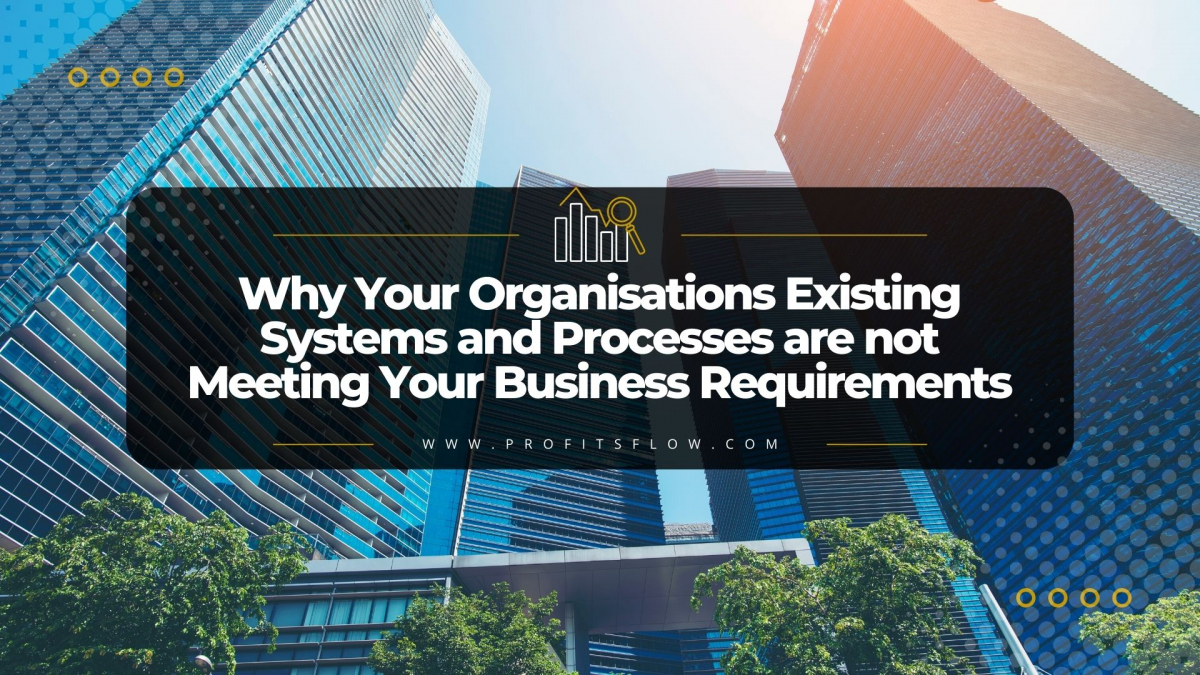Do not Settle for Outdated Systems and Processes: Upgrade to ERP for Streamlined Operations and Increased Efficiency
This week we will be discussing why an organisations current systems and processes may not be meeting business demands and requirements. This is a very common occurrence that can be seen in every sector where business growth occurs. Every business must start from the ground up, and here is when the first systems and processes are put in place. Gradually, over time these will increase in efficiency and be prone to less errors. However, often, there will become a point where performance begins to slow down and plateau, here is when you must discover why you are not exceeding your own business requirements. This is where ERP comes in!
ERP systems integrate all aspects of a business, from finance and accounting to stock control, document management and customer relationship management, (and much more) into one centralised system. ERP systems can provide a single source of truth for all business processes, allowing organisations to streamline operations, reduce costs, and improve efficiency. These ERP systems can also be updated to keep up with industry changes and growth so that your business does not get left behind.
So let us now have a look at why so many organisations are struggling with their existing systems and processes.
- Lack of Integration: Many businesses have multiple systems that are not integrated with each other. This can easily result in duplicate data entry, errors, and delays, particularly when new staff are employed and are not familiar with these processes. ERP systems can integrate all business processes into one system, providing a single source of truth for all data. This makes it much more difficult to have system malfunctions due to human error.
- Manual Processes: Manual processes are time-consuming and prone to errors. They can also be difficult to scale as the business grows. We spoke in more depth about this issue in last week’s blog entry which you can find here. However, in short, ERP systems automate many business processes, reducing the need for manual intervention and improving overall efficiency.
- Lack of Visibility: Many businesses struggle to get a holistic view of their operations. This can result in poor decision-making and missed opportunities. ERP systems provide real-time visibility into all aspects of the business, allowing organizations to make informed decisions.
- Inflexibility: One of the major drawbacks of legacy systems is that they are often inflexible and difficult to customise to meet a business’ changing needs. Unlike ERP these systems they are not adaptable and due to this can result in a loss of revenue in the long run of a company’s existence.
- High Costs: Leading on from our previous point, many businesses are reluctant to invest in new systems due to the perceived high costs. However, the costs of maintaining outdated systems and the potential costs of errors and delays can far outweigh the cost of implementing a new ERP system. Understandably this is one of the biggest concerns when looking for a new ERP system however, when you find a suitable ERP solution that fits your business along with a highly regarded vendor the chance of success is extremely high.
In conclusion, if your organisation’s existing systems and processes are not meeting your business requirements, it may be time to consider implementing an ERP system. ERP systems can provide a centralized, integrated system that streamlines operations, improves efficiency, and provides real-time visibility into all aspects of the business. With the right ERP system in place, your organisation can be better equipped to compete and thrive in today’s fast-paced business environment.
To stay up to date on the topic of ERP be sure to follow us on our social media. The best place to find us is LinkedIn, Twitter, Facebook. If you have any questions or queries you can email us at info@profitsflow.com or simply call us on 01-244-9580.
